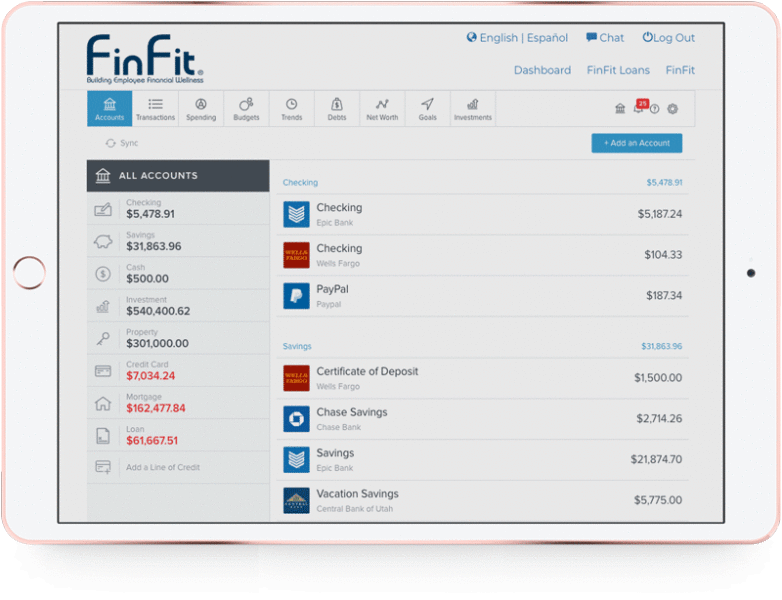How Finfit is building out its financial toolkit for hourly and other workers
The field of fintech companies focusing on people who live paycheck to paycheck continues to grow, with Virginia Beach-based Finfit picking up $7 million in Series B equity funding on Friday. Galaxy Investments and Bison Investments participated in the round.
The 11-year-old company operates a digital financial wellness platform for workers that is available through employer HR and pay systems. Finfit, which operates through a website and mobile app, combines employer payroll information and financial account data into a Mint-style financial dashboard, including budgeting tools and advice. The company also offers financial products, some of which are through partners, including installment loans, early wage access services for a $5 fee, a prepaid debit card and student loan refinancing options. Its loans are issued by Celtic Bank.

The new Series B funding brings the company’s total equity funding to $60 million, in addition to $70 million in debt financing. CEO David Kilby told Bank Innovation the funds will be used to improve the platform’s user experience and fuel its expansion into new product areas, including remittance capabilities (cross-border money transfers directly from employee paychecks), financial coaching and tax preparation services. The company also has savings accounts on its product roadmap.
The platform is aimed at customers who typically would have difficulties getting loans or other financial products from traditional institutions. “[We found that] there was a huge marketplace that was not being serviced,” Kilby said. “The pain points were not being levied only on the individual employee, they were being felt by the employer.”
According to the company, the average income of a Finfit user is $42,000 and 65% of users are hourly workers. Finfit typically works with businesses that have at least 10,000 employees, including meat processing company JBS, chicken producer Pilgrim’s Pride, Krispy Kreme and security services company G4S. Employers also have the option to connect to Finfit through payroll provider Paychex.
See also: Startup Branch wants to build a money services platform for hourly workers
Finfit generates revenue through subscription fees employers pay, one-off fees for instant transfer services and from partnerships with financial institutions. Despite a considerable footprint among employers, the group of companies servicing hourly workers is getting increasingly competitive, with companies like Branch and Even also working with employers. Meanwhile, startup Earnin offers payday advance products and challenger bank Chime lets its customers access their paychecks two days early.
Despite the competition, Finfit is bullish on its growth prospects due to the opportunity from the large swath of underserved customers. “We understand how much [customers are] earning; we understand what their financial positions are; their budgets, their constraints and their behaviors,” said Kilby. “When we provide [financial wellness] opportunities to these employees, it’s specific to their particular needs and specific to a particular situation.”












